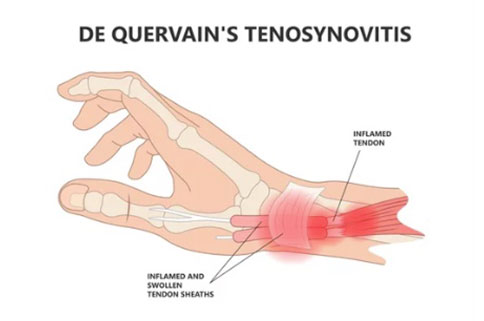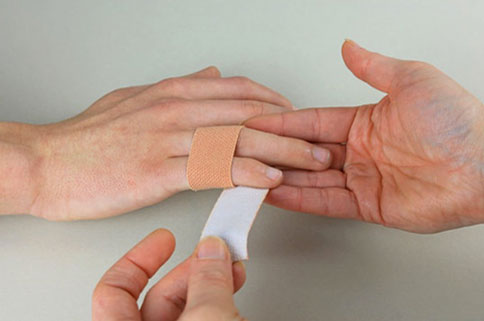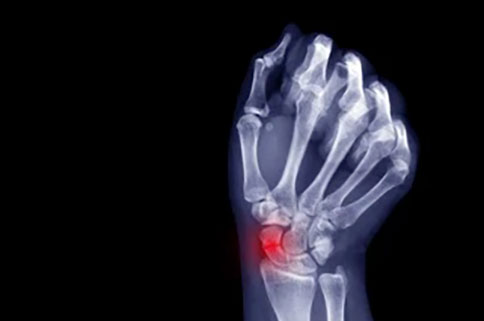
Hand or digit arthritis refers to inflammation and degeneration of the joints in the fingers and thumb. It is a common condition that can affect people of all ages, although it is more common in older adults.
Common types of hand, finger and thumb arthritis include Osteoarthritis, rheumatoid arthritis, and psoriatic arthritis.
Osteoarthritis is a degenerative condition that occurs when the protective cartilage that cushions the joints wears down over time. Rheumatoid arthritis however is an autoimmune disorder that causes inflammation and damage to the joints and Psoriatic arthritis occurs when your body’s immune system attacks healthy cells and tissue.
Causes of hand arthritis
Hand arthritis can be caused by a variety of factors, including:
Age: As people get older, the cartilage that cushions the joints in the hands can begin to break down, leading to arthritis.
Genetics: Some people may be genetically predisposed to developing arthritis in the hands.
Injury: Previous injuries to the hands, such as fractures or dislocations, can increase the risk of developing arthritis later in life.
Overuse: Repeated movements, such as typing or gripping tools, can put stress on the joints in the hands and lead to arthritis.
Inflammation: Inflammatory conditions, such as rheumatoid arthritis, can cause damage to the joints in the hands.
Other health conditions: Certain medical conditions, such as gout or psoriasis, can increase the risk of developing arthritis in the hands.
Symptoms of hand arthritis
The symptoms of hand or digit arthritis can vary depending on the severity of the condition, but may include:
- Pain or tenderness in one or more fingers or the thumb, particularly during movement or when pressure is applied to the affected joint.
- Stiffness or reduced range of motion in the affected fingers or thumb.
- Swelling or inflammation in the joints of the fingers or thumb.
- The formation of small, bony growths or nodules around the affected joints.
- A crunching or grinding sensation when moving the affected joints.
- Weakness or fatigue in the hands or fingers.
- Numbness or tingling in the fingers or hands, particularly if the nerves in the hands are compressed or damaged.
- Difficulty performing everyday tasks, such as gripping objects or typing on a keyboard.
Diagnosing arthritis of the hand
Arthritis of the hand is typically diagnosed through a combination of physical examination, medical history, and diagnostic tests in consultation with Dr Singh.
Treating hand arthritis
The treatment of hand arthritis may vary depending on the severity of the condition and the type of arthritis present. Non-surgical option include:
- Medications: Nonsteroidal anti-inflammatory drugs (NSAIDs), such as ibuprofen or naproxen, can help to relieve pain and reduce inflammation. Topical creams or gels containing capsaicin or diclofenac may also provide pain relief.
- Physiotherapy Exercises and stretches designed to improve hand strength and flexibility can help to reduce pain and improve hand function. A physical therapist may also recommend the use of hand splints or braces to support the affected joints.
- Lifestyle modifications: Making lifestyle changes, such as losing weight, avoiding repetitive motions that stress the hands, and taking frequent breaks during activities that require repetitive hand motions, can help to reduce the risk of further joint damage and relieve symptoms.
- Injections: In some cases, corticosteroid injections may be used to reduce inflammation and pain in the affected joints. Hyaluronic acid injections may also be used to provide lubrication and cushioning in the joints.
In severe cases of hand arthritis, surgery may be necessary. Joint replacement surgery, where the affected joint is replaced with an artificial joint, may be an option in advanced cases. Other surgical options include joint fusion or joint reconstruction.
It’s important to note that hand arthritis can have multiple causes, and often there may be a combination of factors involved so, if you are experiencing symptoms of hand arthritis, it’s best to consult with Dr Singh for an accurate diagnosis and appropriate treatment plan.
 Christmas Operating Hours
Christmas Operating Hours 



















